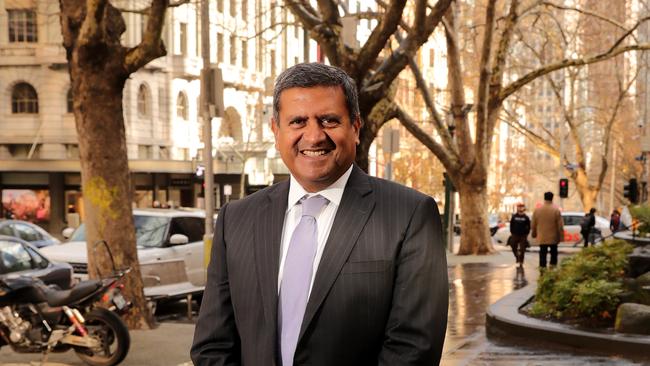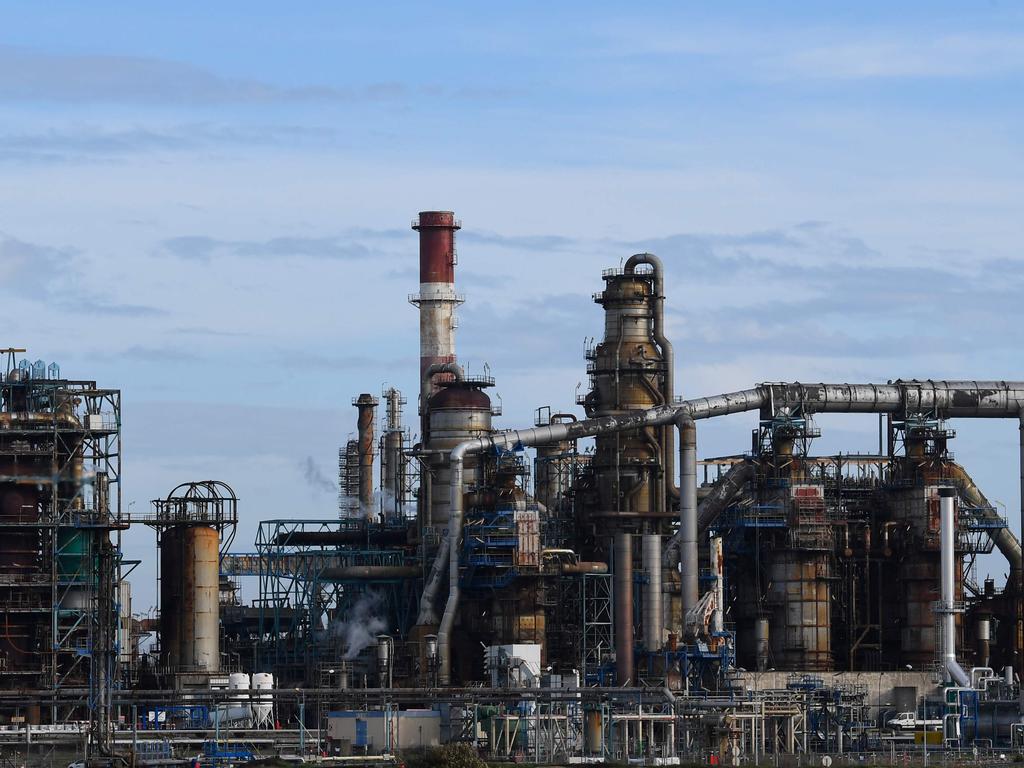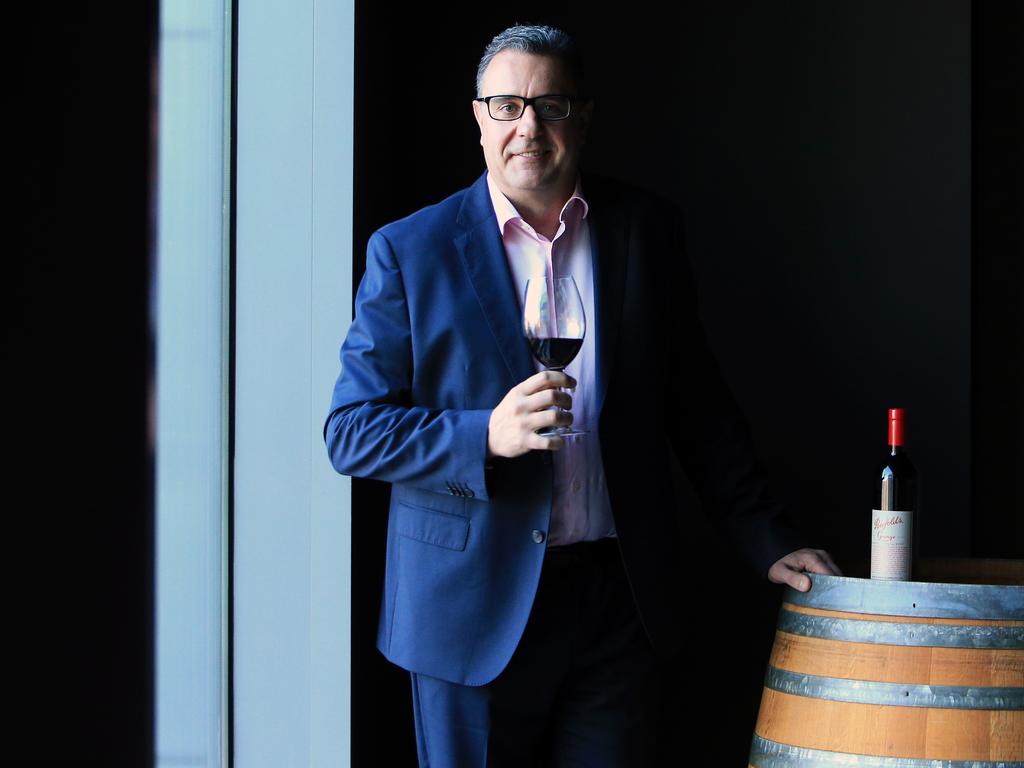Newcrest Mining boss Sandeep Biswas favourite to take over at Rio Tinto
It is understood the appointment of the next Rio Tinto chief executive is imminent.

It has been almost three months since Rio Tinto’s board bowed to the inevitable and announced the departure of chief executive Jean Sebastien Jacques, and the search for a replacement is about to come to a close.
It is understood the appointment of the next Rio chief executive is imminent. If a new Rio boss isn’t announced next week, then it will be soon after, with the board understood to be weighing the last few names left in the pot of hopefuls in the hope of making a decision by December 11, three months after Jacques’ departure was announced.
The shortlist is a closely kept secret between Rio’s nomination committee and London-based headhunters MWM Consulting, which led Rio’s search.
But industry sources suggest Newcrest Mining boss Sandeep Biswas is at the front of the pack, with other names still believed to be in contention including Anglo American finance chief Stephen Pearce, former Fortescue chief executive Nev Power, former BP CFO Brian Gilvary, and perhaps a handful of others.
Some notable names, including Shell’s Zoe Yujnovich, are believed to have dropped out of contention and other high-profile executives — like Anglo boss Mark Cutifani, South32 chief Graham Kerr and Newmont CEO Tom Palmer — have publicly ruled themselves out. (But as always, those denials may well come under the “well, he would say that, wouldn’t he?” heading).
Whoever replaces Jaques faces a herculean task to fix the other issues at Rio, and the key issue for the board probably comes down to a single word: partnerships.
There’s no doubt Jacques can leave Rio with some pride in his record. Under his leadership, the company’s mines are arguably safer places to work than they have ever been.
A perfectly timed exit of its coal business delivered buckets of cash to shareholders and helped Rio prepare for growing shareholder pressure to decarbonise its business. Rio also shifted the focus of its alumina business to bauxite exports at exactly the right moment. But those aside, without the high iron ore price the pressure on Jacques would have been immense even before the Juukan Gorge debacle.
Looking back at the months leading up to Rio’s announcement on September 11, it is starkly apparent how few allies Jacques had among those groups that were prepared to publicly back him as the Juukan Gorge debacle rolled to crisis point.
That suggests a serious breakdown of Rio’s relationship with many of its key stakeholders — in the financial community, traditional owner groups, the broader business community, in Rio’s own workforce, in political circles and in the media.
The new Rio boss will face the most uncertain outlook in generations, in a world destabilised by the coronavirus, trade tensions, the renewed rise of nationalism around the globe and pressure on global governments to find ways to pay for the debt taken on to help their economies recover from the pandemic.
The new boss will need to be able to immediately steady those relationships as they plot a long term plan to restore both Rio’s reputation and operating capability.
That will clearly need to begin with an immediate overhaul of Rio’s executive leadership team, in itself another potential point of destabilisation.
But other issues will not wait for long.
A generation of the company’s emerging leadership left Rio in the middle of the decade, with some, like Newmont’s Tom Palmer or Aurizon’s Andrew Harding, early contenders to return in Rio’s top role.
That pipeline of talent needs to be rebuilt, in an environment where Rio’s staff are battered and bruised by the months of public criticism of its actions leading up to the destruction of the 46,000-year-old heritage sites at Juukan Gorge.
And after its WA iron ore division lost its prized crown of being the most efficient producer in the Pilbara — a point of pride for its workforce, one that was hammered home by generations of managers to anyone who walked onto site or into its WA headquarters.
The situation for Rio at its flagship Oyu Tolgoi copper mine in Mongolia is going from bad to worse, as the Mongolian government again threatens to review the terms of Rio’s ownership of the mine and its junior partner in the project, Turquoise Hill, in open rebellion over how its share of the underground development of the mine will be funded.
Rio’s reputation in Australia is badly tarnished at the same time it faces tricky negotiations with federal and state governments over the future of its aluminium smelters, still suffering from high power prices.
It’s two main growth projects — the Resolution copper project in Arizona, a joint venture with BHP, and the Winu project in WA — will almost certainly suffer delays stemming from the destruction of Juukan as Rio tries to rebuild some trust with traditional owners.
And, while rebuilding relationships with the governments that regulate its most important assets, the new CEO must also keep one eye on Australia’s deteriorating relationship with Rio’s most important customer.
As but one example, they will need to juggle China’s near-term reliance on Australian resources against its desire to develop a new iron ore province in Africa, where Rio faces the tricky task of negotiating with a China-backed consortium over development of the two halves of the Simandou deposit that will eventually undermine its Pilbara operations.
Senior leaders at BHP privately admit it took the company years to recover from the issues in its WA iron ore business a decade ago, after a spate of deaths on its Pilbara sites in 2009 forced a complete reset of its thinking and culture to put safety firmly back as the top priority.
The new CEO faces similarly daunting tasks, and on multiple fronts, in an environment where the high iron ore price that helped mask its problems will begin to soften.
It will be a tough gig, and whoever gets it will need to earn their money.





To join the conversation, please log in. Don't have an account? Register
Join the conversation, you are commenting as Logout